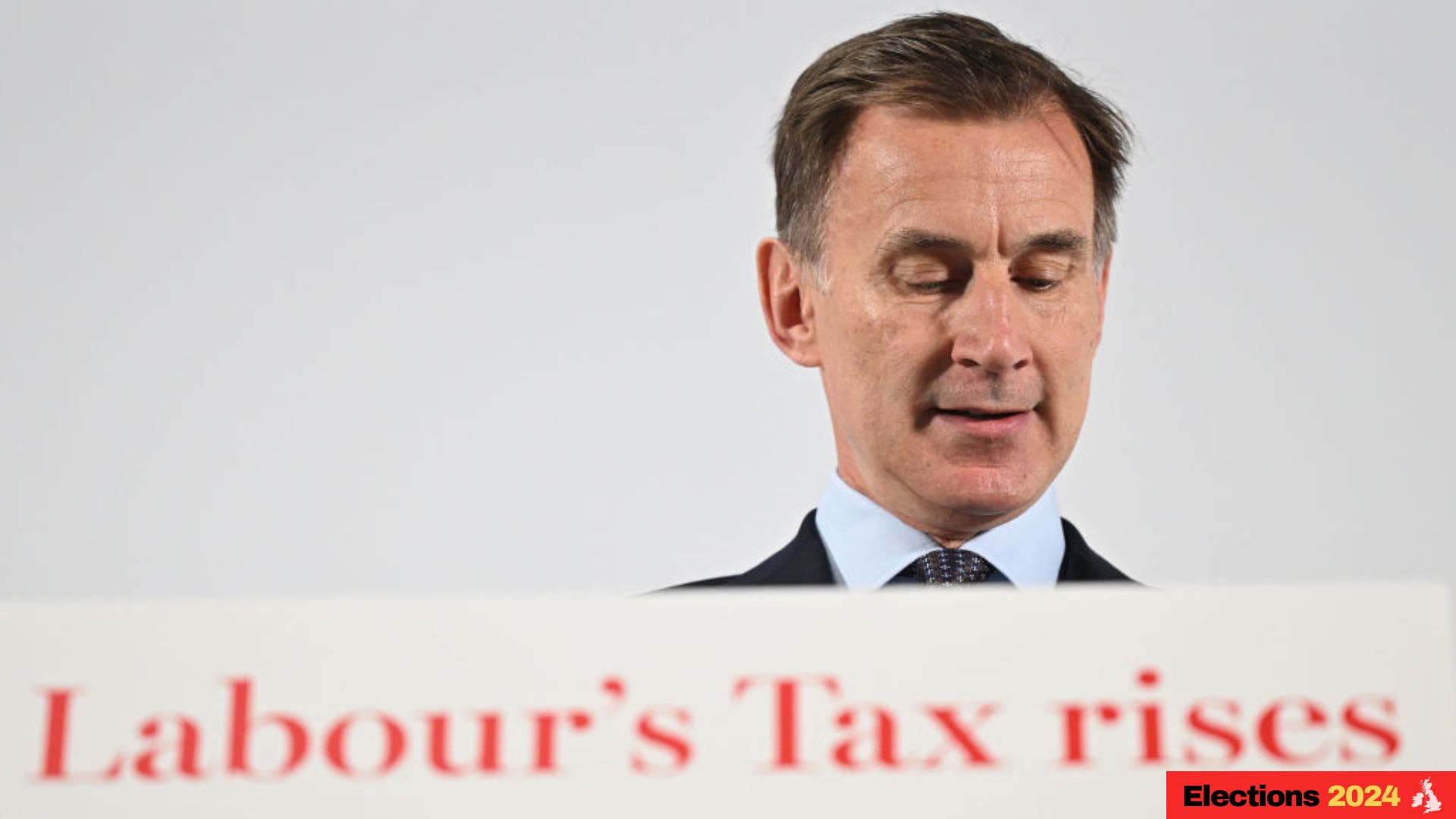Government spending rises and casts doubt on pre-election tax cuts
Jeremy Hunt’s ability to lower taxes may become harder after government spending in April rose to £20.5bn. Although a July election now effectively puts an end to the prospect.


Get the latest financial news, insights and expert analysis from our award-winning MoneyWeek team, to help you understand what really matters when it comes to your finances.
You are now subscribed
Your newsletter sign-up was successful
Want to add more newsletters?

Twice daily
MoneyWeek
Get the latest financial news, insights and expert analysis from our award-winning MoneyWeek team, to help you understand what really matters when it comes to your finances.

Four times a week
Look After My Bills
Sign up to our free money-saving newsletter, filled with the latest news and expert advice to help you find the best tips and deals for managing your bills. Start saving today!
Government spending increased to £20.5bn in April, the fourth-highest April on record, throwing doubt on the UK chancellor’s ability to cut taxes before an election takes place. However, the announcement of a July election now makes this almost impossible.
Public sector receipts rose by £1.6bn last month compared with the same period last year, but this jump was outpaced by a £3.1bn increase in spending.
As such, the Office for National Statistics said public sector net borrowing was £1.5bn higher than it was in April 2023, partly driven up by a decrease in national insurance contributions.
MoneyWeek
Subscribe to MoneyWeek today and get your first six magazine issues absolutely FREE

Sign up to Money Morning
Don't miss the latest investment and personal finances news, market analysis, plus money-saving tips with our free twice-daily newsletter
Don't miss the latest investment and personal finances news, market analysis, plus money-saving tips with our free twice-daily newsletter
Borrowing figures are closely watched by economists to check how much wiggle room the government has for policy measures such as tax cuts. Before Wednesday’s figures (22 May) were released chancellor Jeremy Hunt had already suggested he will - "if we can afford to" - try to lower national insurance again before an upcoming election, which has now been confirmed as happening on July 4.
It is not clear if there will be another Autumn Statement before the next general election, which must be held by 28 January 2025.
‘Off to a shaky start’
Alex Kerr, assistant economist at Capital Economics, said: “April’s public finances figures got the new 2024/25 fiscal year off to a shaky start and cast further doubt on the chancellor’s ability to unveil big tax cuts at another pre-election fiscal event later this year.”
He added that the chancellor “will be disappointed” that April’s figures do not provide more scope for tax cuts. “Moreover, we expect slower nominal GDP growth and wage growth to dampen tax receipts growth later this year. And the rise in market interest rates since March’s budget alone suggests he may have even less fiscal ‘headroom’ for cuts than the £8.9bn left over in March.”
The chancellor has already lopped 4p off national insurance contributions, which cost the government around £20bn. Hunt said at the time: “Our changes will help 27 million employees, and two million self-employed people. Changes that make our system simpler and fairer and grow our economy by rewarding work.”
Grant Fitzner, the chief economist at the ONS, said: "While central government spending and income overall both rose compared to this time last year, a large drop in national insurance contributions meant receipts did not grow as fast as spending.
"Relative to the size of the economy, debt remains at levels last seen in the early 1960s."
IMF issues warning
On Tuesday, the International Monetary Fund (IMF) warned Hunt that Britain was set to miss its debt target and should not cut taxes before an election is called. It added that tax rises are likely to be needed in future.
The IMF said weak investment in the past was weighing on the UK’s economic growth.
"Against the backdrop of these challenges, as a general principle, staff would advise against additional tax cuts, unless they are credibly growth-enhancing and appropriately offset by high-quality deficit-reducing measures," the IMF said.
Despite this, the Institute for Fiscal Studies (IFS), a think tank, says Hunt technically has an extra £12bn at his disposal. This is based on the five-year fiscal horizon he uses to measure the country's finances, which assumes significant public spending cuts after the general election.
Although the IFS says this way of calculating headroom for public spending is "poorly designed", and that it "should not be the basis for immediate and permanent tax cuts".
Get the latest financial news, insights and expert analysis from our award-winning MoneyWeek team, to help you understand what really matters when it comes to your finances.
Chris is a freelance journalist, and was previously an editor and correspondent at the Financial Times as well as the business and money editor at The i Newspaper. He is also the author of the Virgin Money Maker, the personal finance guide published by Virgin Books, and has written for the BBC, The Wall Street Journal, The Independent, South China Morning Post, TimeOut, Barron's and The Guardian. He is a graduate in Economics.
-
 How to navigate the inheritance tax paperwork maze in nine clear steps
How to navigate the inheritance tax paperwork maze in nine clear stepsFamilies who cope best with inheritance tax (IHT) paperwork are those who plan ahead, say experts. We look at all documents you need to gather, regardless of whether you have an IHT bill to pay.
-
 Should you get financial advice when organising care for an elderly relative?
Should you get financial advice when organising care for an elderly relative?A tiny proportion of over 45s get help planning elderly relatives’ care – but is financial advice worth the cost?
